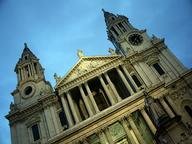Quiz Answer Key and Fun Facts
1. In the city of York it is legal to murder any Scotsman found within the city walls provided he is carrying which item?
2. Thanks to Oliver Cromwell what are you not allowed to eat on Christmas Day?
3. Urban legend has it that it is an act of treason to do what with a British postage stamp?
4. It is illegal to enter the Houses of Parliament whilst wearing what item?
5. In London it is illegal to flag down a taxi if you have which disease?
6. At what are all Englishmen over the age of 14 still required, by law, to carry out two hours of practice at each week?
7. Under the Metropolitan Police Act of 1839 and the Town Police Clauses Act of 1847 it is illegal to keep what in front of your house?
8. A law states that all beached whales or sturgeon on British beaches are the property of who?
9. The Houses of Parliament have several laws that are all their own. What, of the following, is illegal to do anywhere in the Houses of Parliament?
10. Love them or hate them cyclists are all over our streets. They are, however, all breaking an 1888 law that requires them to do what continuously while they are moving?
Source: Author
Christinap
This quiz was reviewed by FunTrivia editor
trident before going online.
Any errors found in FunTrivia content are routinely corrected through our feedback system.

